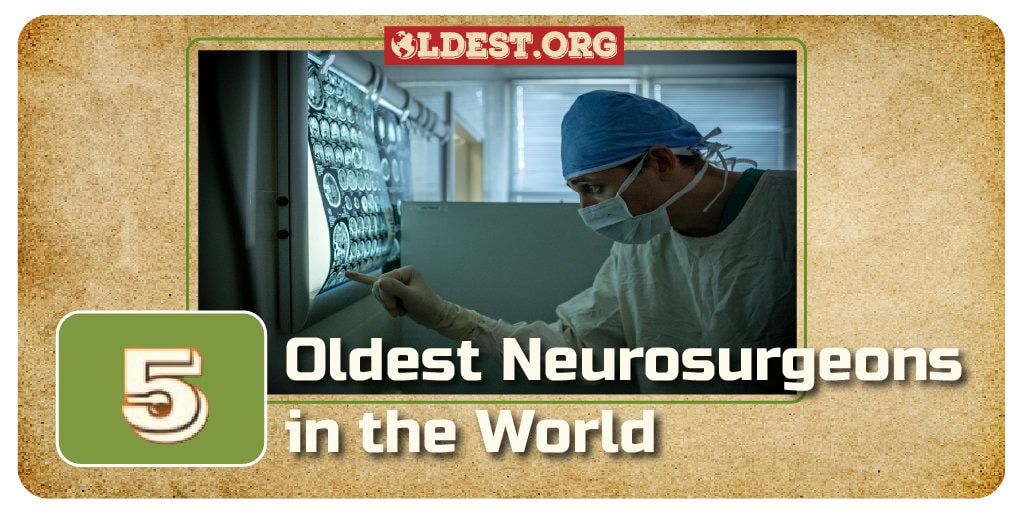Just like every other kind of doctor, neurosurgeons play an essential role in the world of medicine. They do more than just operate on the human brain; they diagnose and treat a variety of illnesses, and contribute to the field of medical science through discovery, trial, and error. In this article, we’re going to look at some of the oldest neurosurgeons in the world, both alive and dead, and how their contributions have made a difference.
Let’s get right into it.
5. Oldest Neurosurgeons in the World
5. Howard Tucker
Age: 101
Country: United States of America
Profession: Neurosurgeon and professor
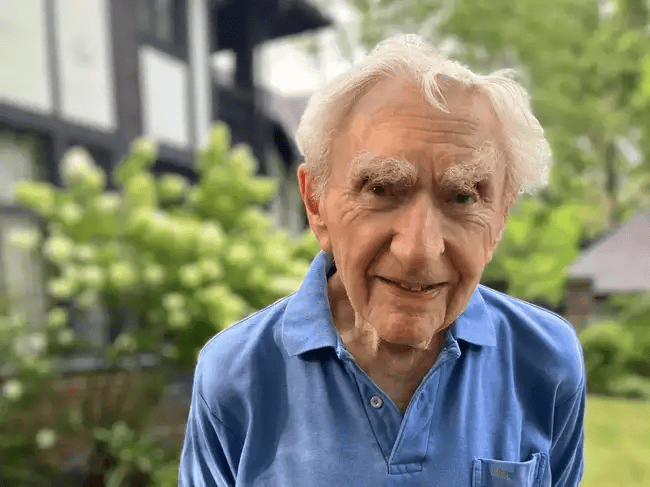
Howard Tucker is the world’s oldest practicing neurosurgeon! At 101 years old, Dr. Tucker has not slowed down or showed any signs of wanting to stop his career. He has worked as both a neurosurgeon and professor for over 60 years, although he prefers to teach medical students these days.
His interest in medicine began when he was only a high school student. He joined the University of Ohio for his undergraduate degree and later went on to join the Ohio State University College of Medicine for his medical degree. He spent a significant portion of his medical career in Cleveland, choosing to complete his residency and training in the city.
Did you know?
Howard Tucker was the Chief of Neurology during the Korean War for the Atlantic Fleet.
4. Jacob Chandy
Age: 97, deceased
Country: India
Profession: Neurosurgeon and professor
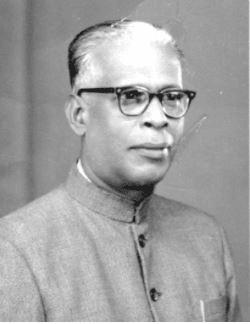
Jacob Chandy was a force to be reckoned with during his long and decorated career. He was one of the first neurosurgeons in India, and is widely remembered across the country even today. Dr. Chandy got his MBBS from Madras Medical College and later moved to Bahrain to work at a missionary hospital. He later moved to the US to study at the University of Pennsylvania, where he got his MD and learned more about neurosurgery.
In the years that followed, Jacob Chandy got fellowships from the Royal College of Surgeons, Canada (FRCS), and the Montreal Neurological Institute (MNI). After completing his fellowship at FRCS, he became the chief resident at the University of Chicago. During his time in Chicago, he was offered the chance to join Christian Medical College, in Vellore. He went on to start both CMC and India’s first Department of Neurology and Neurosurgery.
Did you know?
Jacob Chandy is called the father of modern neurosurgery throughout India.
3. Alim Louis Benabid
Age: 81
Country: France
Profession: Neurosurgeon and emeritus professor
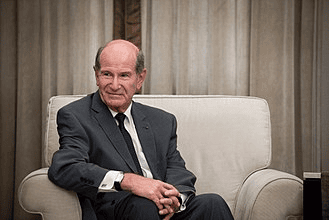
Alim Louis Benabid is, in additon to being one of the oldest neurosurgeons in the world, is also one of the most important people to have contributed to the development of deep brain stimulation. He was interested in studying both medicine and physics and couldn’t decide between the two. He later went on to obtain doctorates in both subjects.
His career in neurosurgery began to take off when he joined the neurosurgery staff at Joseph Fourier University. In 1978, he became a professor of experimental medicine and later went on to teach biophysics for over 20 years until 2007. In terms of deep brain stimulation, Dr. Benabid has worked extensively on developing stereotactic surgical methods for patients with movement disorders or brain tumors.
Did you know?
Alim Louis Benabid has won over 20 awards and honors for his work in the field of neurosurgery. These include the Robert A. Pritzker Prize for Leadership in Parkinson’s Research in 2013, the Medicine and Biology Prize of the Comité du rayonnement français in 1997, and the Doctor honoris causa on the occasion of the KU Leuven Patron Saint’s Day in 2018.
2. Henry Marsh
Age: 74
Country: England
Profession: Neurosurgeon and author
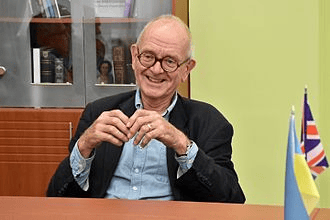
Henry Marsh is one of the most prolific neurosurgeons in the world, as well as a pioneer of awake craniotomies. He has worked extensively in Ukraine and started a charity with a fellow doctor over there. It is called Hospice Ukraine and works to help doctors and nurses providing patients with palliative care.
His work as a neurosurgeon has seen him work at St. George’s College in London. His specialty involved brain operations on patients who were under local anesthetic. In addition to surgery, Dr. Marsh has lectured extensively on the correlation between hospital buildings and their design, and the way that these factors affect staff morale and patient outcome.
Did you know?
Dr. Henry Marsh has patronized the organization My Death My Decision, whose work focuses on campaigning for the legal rights to receive a medically-assisted death.
1. B. K. Misra
Age: 71
Country: India
Profession: Neurosurgeon and Vice President of various medical societies
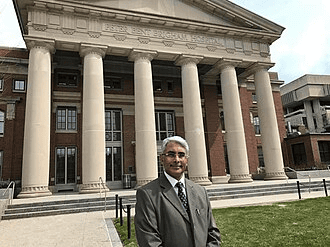
Dr B. K. Misra is one of India’s leading neurosurgeons. After completing his studies in medicine, he began his career by working for the Indian Council of Medical Research as a research officer. He is currently the chairman and chief of surgery there and is also the head of neurosurgery at Hinduja Hospitals in Mumbai.
Over the years, Dr. Misra has achieved many firsts in neurosurgery in India and the world. These include being the first neurosurgeon in the whole world to perform an image-guided surgery for aneurysms and being the first neurosurgeon in India to perform an awake craniotomy. He had also worked on helping develop biomedical devices with the Biomedical Engineering and Technology (incubation) Centre (BETiC) at IIT Bombay.
Did you know?
Dr. B. K. Misra has won the highest medical honor in India, the Dr. B. C. Roy Award.
Conclusion
In this article, we took a closer look at some of the world’s oldest neurosurgeons. The four doctors mentioned on this list have all made significant contributions to the field of medical science and neurology in various way. Although most of them are extremely old, they have not shown signs of wanting to stop or slow down their careers, and are choosing to focus on providing patients with the help that they need to survive! We hope you enjoyed reading this article, and that you learned something new from it.


